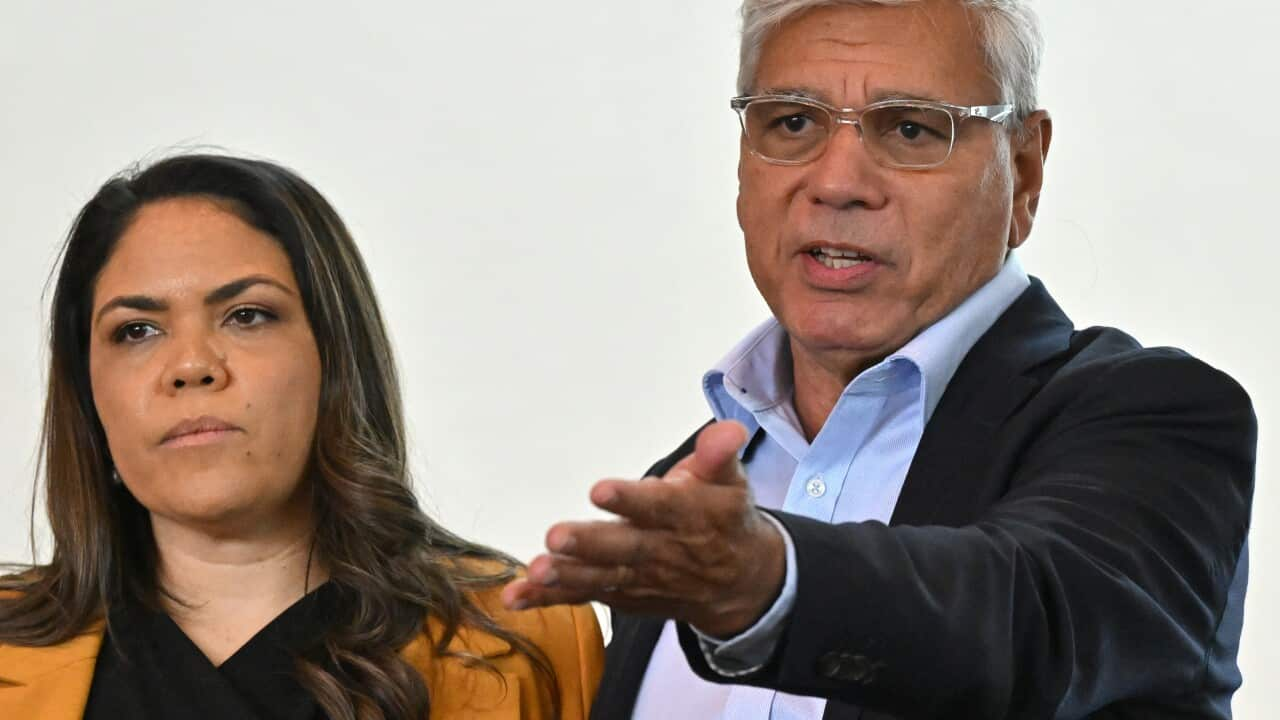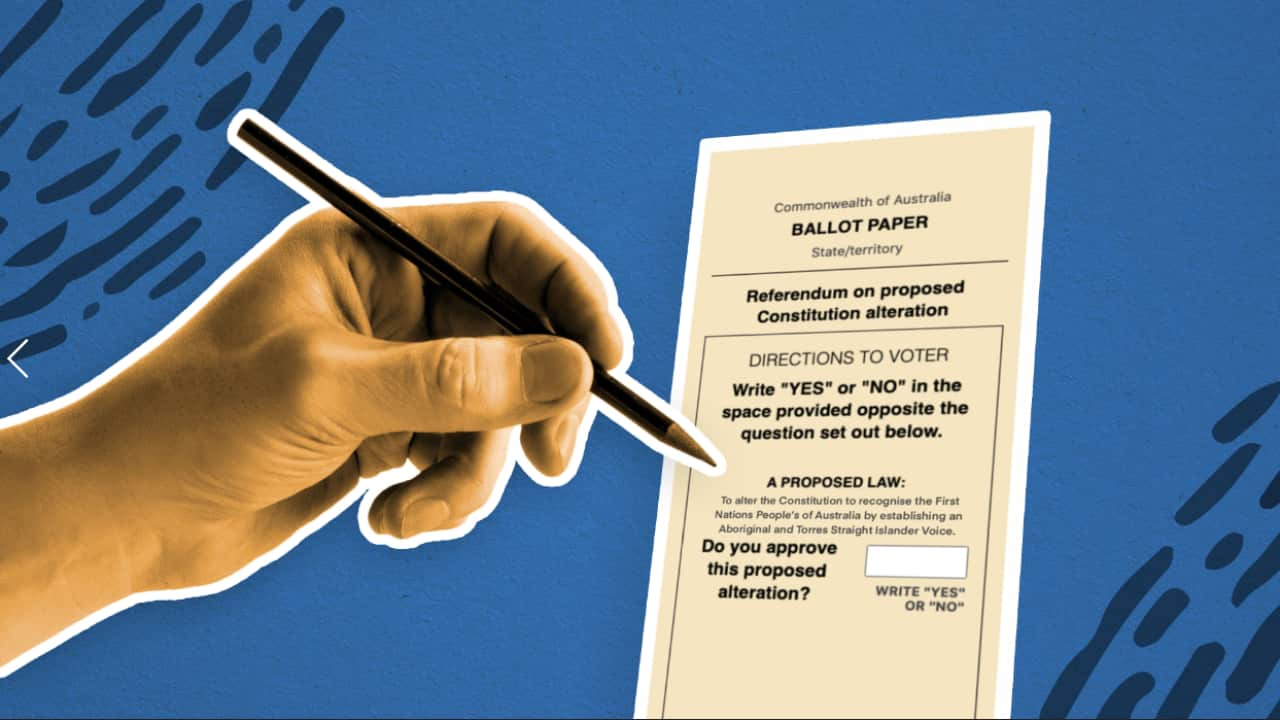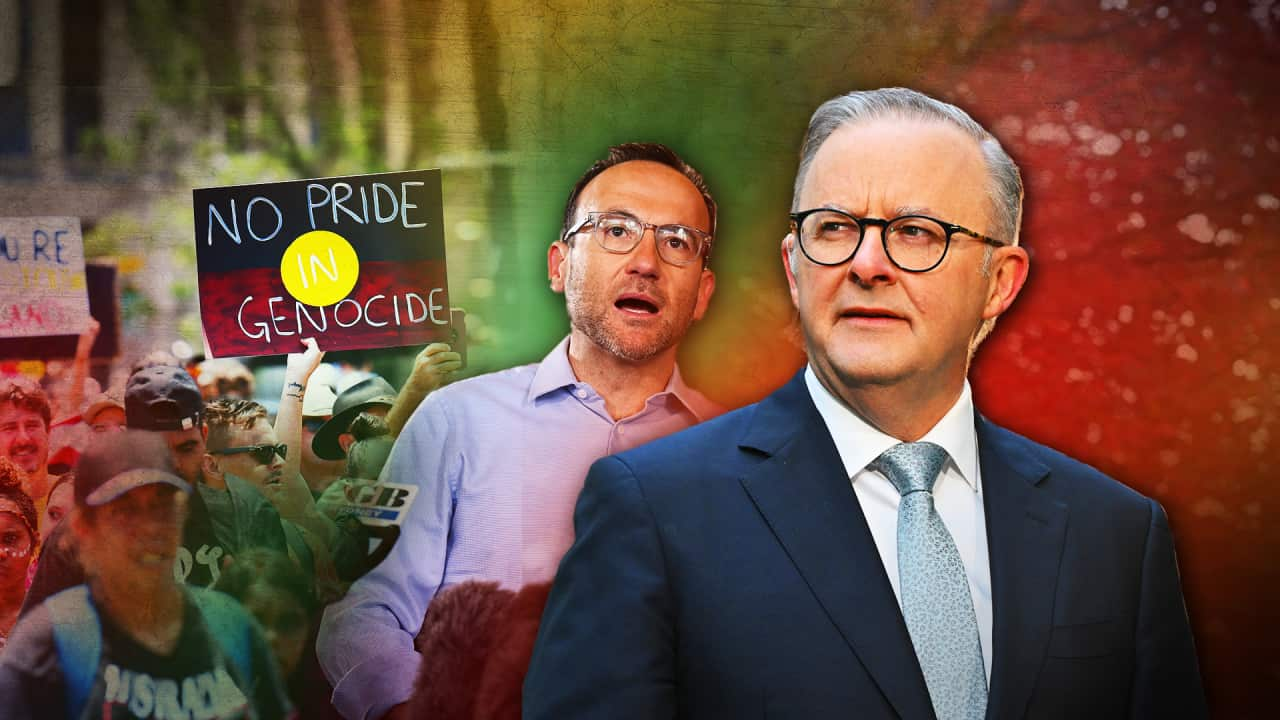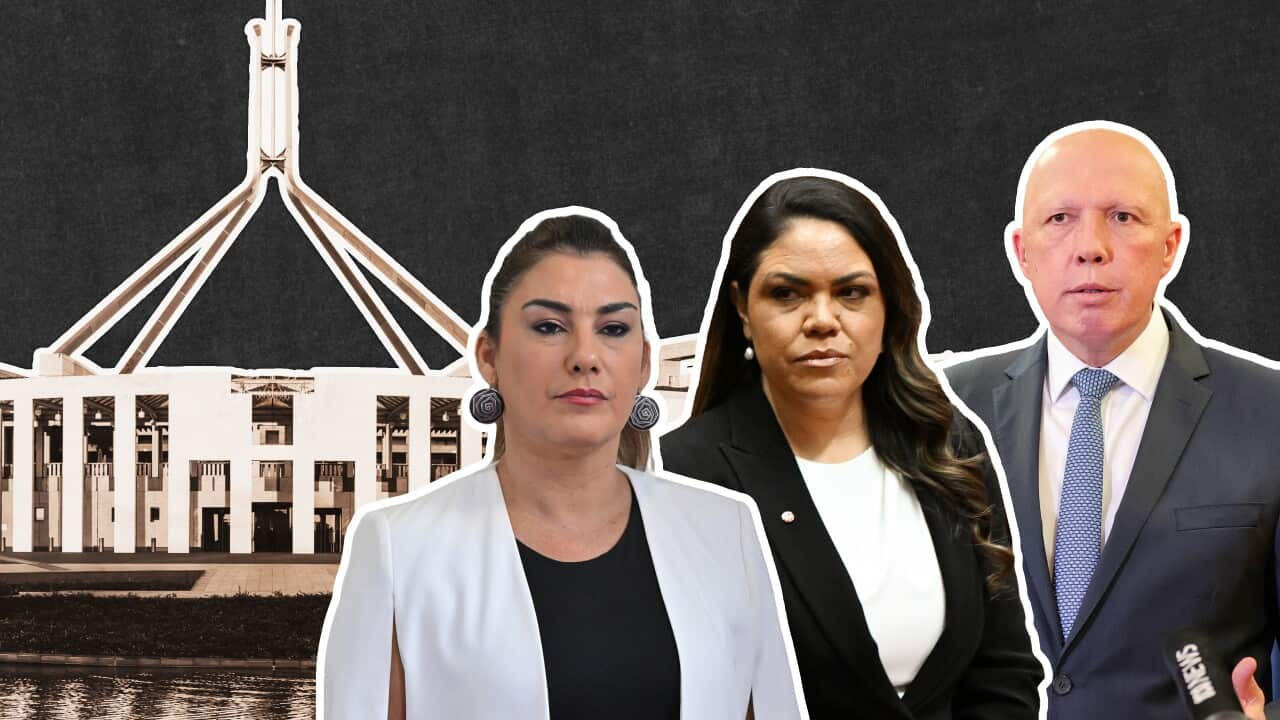KEY POINTS
- Warren Mundine spoke in 2017 of a grassroots voice backed by the Constitution.
- Mundine said the "natural flow" of grassroots movements would be a national body.
- He denies the statements contradict his current position.
Leading No campaigner Nyunggai Warren Mundine once argued Indigenous people "need to have a voice, we need to be heard", and said, “we also need guarantees that we just don't have bodies set up and then destroyed by governments, we actually have bodies that are fully recognised and have the force of law, constitutional law, behind them”.
Speaking on a panel in 2017, Mundine described this as a body, established at a grassroots level, and said “the natural flow to me is that we will end up with a national body which will have the voice of what Indigenous people are saying on the ground and they have that conversation moving forward”.
But Mundine argues there is no contradiction between that statement and his current position, insisting he has always opposed a national, constitutionally enshrined voice.

Mundine says there is no contradiction between his 2017 comments and his current position. Source: AAP / Aaron Bunch
The audio recording shows Mundine saying he had not been "won over" by the idea of a national body, but accepting he was "shifting in support of it".
He also appears to stress the need for any body to have constitutional backing.
Mundine denies statements are contradictory
In a statement to SBS News on Monday, Mundine stressed he made the comments before the 2017 Uluru Statement from the Heart was published, and insisted he had never advocated for a national Voice.
"It is no secret that I published an essay six years ago ... advocating for a model of recognition that supports traditional owner groups having a say on their own languages, cultures, heritage, land and sea. That essay did not advocate for a national representative Voice," he said.
"The opinions I expressed ... are the same reasons I oppose the Voice. Because a national, representative Indigenous body will undermine traditional owner rights to speak for their own countries."
Mundine pointed to an AFR op-ed he wrote days after the Uluru Statement was published, in which he said he "always disagreed" with a national Voice and argued a grassroots equivalent would not require a referendum.
"The Uluru Statement made two proposals. One is a 'top-down' lawyers' proposal that will certainly fail," he wrote.
"The other is a grassroots proposal with overwhelming Indigenous support that could be implemented without the need for any referendum."
In the op-ed, Mundine also repeated his support for a treaty process but, unlike today, argued "we don't need" constitutional recognition of Indigenous people.
Indigenous advocate and Yes campaigner Marcus Stewart said Mundine “clearly” supported a constitutionally-enshrined Voice, but had pivoted to “where he could build a profile for himself”.
Stewart accused the No campaigner of “hedging his bets” on the issue by “talking out of both sides of his mouth”.
“Warren is a seasoned politician and no one's going to genuinely believe … Wazza’s weasley words on this,” he said.

Indigenous advocate and Yes campaigner Marcus Stewart. Source: AAP / Joel Carrett
“It's basically just spitting in the face of Aboriginal and Torres Strait Islander people whose lives we're setting out to improve.”
Clarification: The previous version of this story has been updated to clarify that Warren Mundine spoke in support of a grassroots voice or body with a form of constitutional backing – as distinct from a nationally-led body – in 2017.












